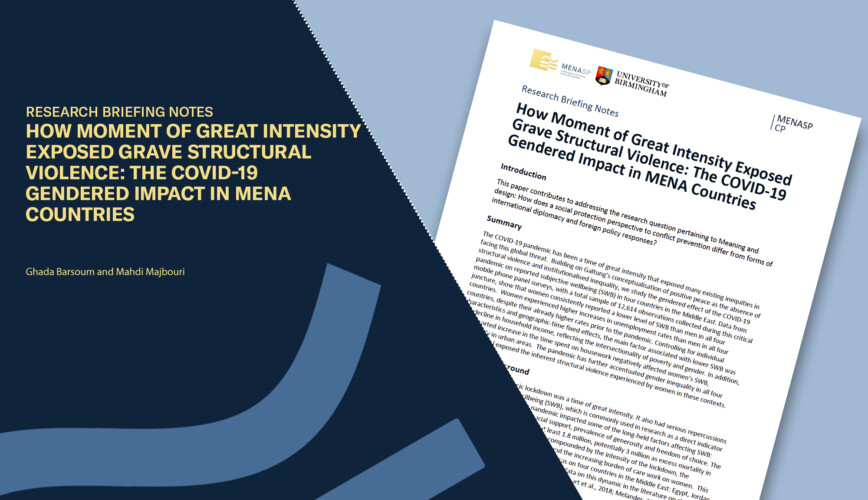This paper contributes to addressing the research question pertaining to Meaning and design: How does a social protection perspective to conflict prevention differ from forms of international diplomacy and foreign policy responses?
The COVID-19 pandemic has been a time of great intensity that exposed many existing inequities in facing this global threat. Building on Galtung’s conceptualisation of positive peace as the absence of structural violence and institutionalised inequality, we study the gendered effect of the COVID-19 pandemic on reported subjective wellbeing (SWB) in four countries in the Middle East. Data from mobile phone panel surveys, with a total sample of 12,614 observations collected during this critical juncture, show that women consistently reported a lower level of SWB than men in all four countries. Women experienced higher increases in unemployment rates than men in all four countries, despite their already higher rates prior to the pandemic. Controlling for individual characteristics and geographic-time fixed effects, the main factor associated with lower SWB was the decline in household income, reflecting the intersectionality of poverty and gender. In addition, the reported increase in the time spent on housework negatively affected women’s SWB, particularly in urban areas. The pandemic has further accentuated gender inequality in all four countries and exposed the inherent structural violence experienced by women in these contexts.
DOI: 10.48352/uobxmenasp.0008
Authors: Ghada Barsoum, Professor and Director of Master of Public Policy (American University in Cairo) and Mahdi Majbouri, Professor of Economics (Babson College)
This project is supported by the Middle East and North Africa Social Policy Network (MENASP) at the University of Birmingham, in the framework of its ‘strengthening social welfare and security in the MENA region’ research programme, funded by the UK Arts and Humanities Research Council’s Global Challenges Research Fund.
Disclaimer: The opinions expressed in this publication are those of the authors. They do not purport to reflect the opinions or views of the Middle East and North Africa Social Policy (MENASP) Network or the University of Birmingham.
